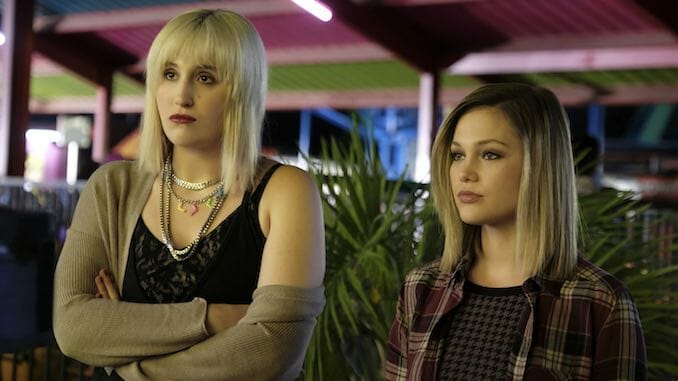Mare of Easttown, Cruel Summer, and the Revival of (Good) Theory Culture
Let’s talk about TV.
Photo Courtesy of Freeform
Early in the days of Netflix-by-mail (and late in the days of Blockbuster-by-mail), I was very into catching up on TV shows I had missed when they first aired: Deadwood, Twin Peaks, Lost (the first seasons), The Wire, and more. But as much as I enjoyed watching those series on my own, I yearned to have conversations about them. Unfortunately, they were no longer being discussed. Recappers, especially as they worked their way through legacy shows, thankfully provided that discourse for me; their pieces offered a second point of view that might align with my own or go against it, but either way it sharpened the way I thought critically about TV shows and enhanced my enjoyment knowing that someone else caught the joke or recognized that callback.
For awhile recaps proliferated (and I started writing them myself), fulfilling a desire viewers had to analyze their favorite series together. But with the way we consume TV now, that has waned. Much has been said about how this Peak TV and streaming era has destroyed watercooler culture around TV shows: because we can binge any one of over 500 scripted shows a year all at once whenever we want, it’s almost impossible now to find a series popular enough that it’s being talked about on an episodic basis. Game of Thrones was really the last of its kind for awhile, but recently—with mystery series in particular—we’re finally seeing a small but encouraging revival of theory culture.
There are some reading this who will remember the heyday of True Detective Season 1, rushing to Reddit to read intricate theories and pick apart Lovecraftian references. These forums on social media have continued to exist for plenty of things, particularly true crime, but less so for most television—until recently. WandaVision on Disney+ played into that guessing-game zeitgeist, where viewers theorized what TV era the show would pay homage to next, or what it meant when X character showed up or Y powers manifested. But a lot of that was still tied up with a more toxic superhero fan subculture that is obsessed with comic connections in ways that casual viewers aren’t, and who get disappointed (or extremely Angry Online) when things don’t play out as predicted.
But there is a side to theory culture that isn’t as toxic, and it came to us as a one-two gift from HBO and Freeform over the past few weeks: Mare of Easttown and Cruel Summer. Both are short mystery series that wanted viewers to theorize alongside them, although they did so in different ways. Mare is extremely character-driven, Cruel Summer is more about the plot twists. But both reignited a desire for appointment television in a way few others have managed. These are the only two shows where I’ve gotten texts, DMs, Reddit messages, and Slack chats about “Have you seen….?” “What did you think about….?” Cruel Summer is a series where I again rush to Reddit each week to read theories and laugh at memes about our collective obsession with the show’s storytelling. Before the finale of Mare, my boyfriend and I sat for over an hour hashing out our theories of who killed Erin, bringing up various minutia that bolstered or deflated our ideas. It’s honestly been a blast.
-

-

-

-

-

-

-

-

-

-

-

-

-

-

-

-

-

-

-

-

-

-

-

-

-

-

-

-

-

-

-

-

-

-

-

-

-

-

-

-








































